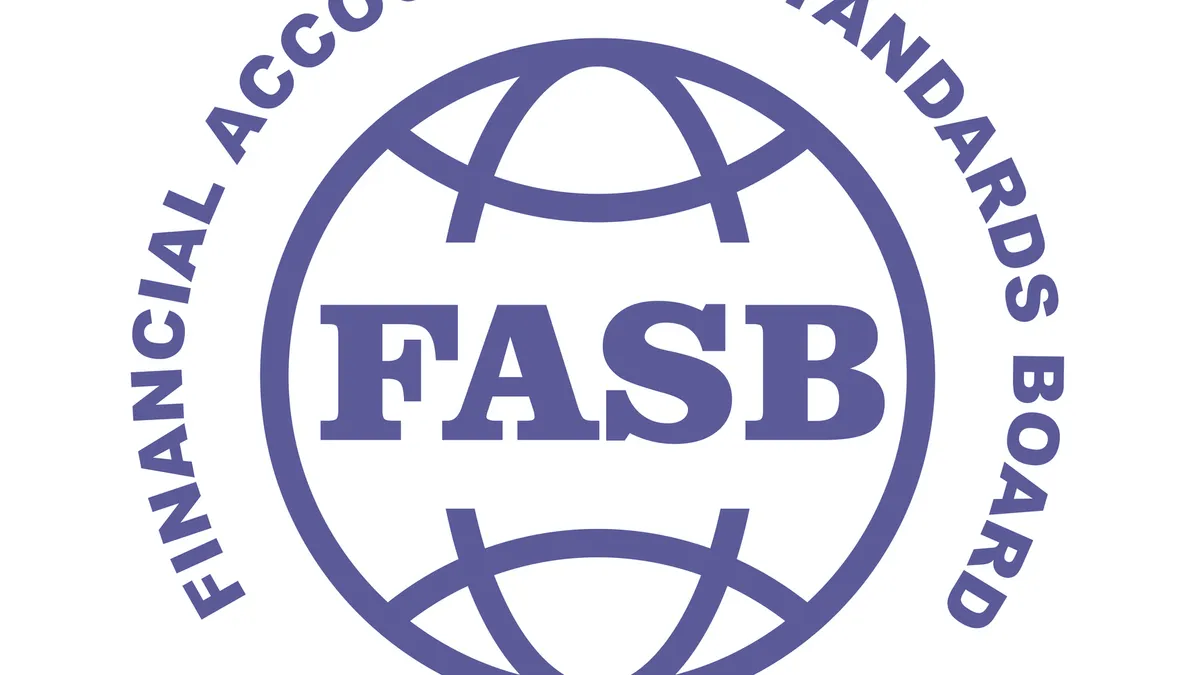Dive Brief:
- The Financial Accounting Standards Board by a (6-1) vote this week “tentatively” decided that it will provide guidance for the accounting treatment of government grants by effectively borrowing the accounting framework from an existing International Financial Reporting Standards (IAS 20) rule.
- The move would be less disruptive and costly for financial report preparers than if the FASB developed its own new accounting model, because many businesses already rely on those international rules as there is currently no “authoritative” guidance in generally accepted accounting principles that specifically address government grants, the FASB staff told the board at its Wednesday meeting.
- The U.S. accounting standards setter is now “tentatively planning to issue for public comment a proposed accounting standards update that would incorporate the main principles for recognition and presentation contained in IAS 20 into U.S. GAAP,” a FASB spokesperson said in an email.
Dive Insight:
The government grants project is one of the top priorities of FASB. When it proceeded with the project last year, the board cited the rise of government programs during the pandemic as a development that shed light on the need for the guidance.
Because there is no reporting standard, business and companies draw guidance from the international and other rules. The current absence of guidance has lead to differences in the way such grants are reported, leaving the topic “rife with reporting diversity” and making it “difficult for investors to make useful comparisons,” according to a 2022 Thomson Reuters report.
The decision drew strong opposition from Board Member Christine Botosan, the lone dissenting vote. She said the international standard was out of date and essentially allows almost any approach to accounting for government grants.
“I don’t find it at all surprising that most U.S. entities say that they analogize to IAS 20 because almost anything goes,” Botosan said at the meeting. “Instead of codifying existing diversity and bad accounting practices, I would prefer that we improve financial reporting for government grants.”
But FASB Chair Richard Jones, before voting in favor of incorporating the international guidance, said he felt like it was a step forward. “I do think removing analogizing and creating a model is helpful,” Jones said. “One thing I know is by doing nothing we don’t make any progress.”
Last month the FASB backed away from pursuing a more substantial revamp of its existing accounting standards that would have created a single model to account for software, instead voting to keep the current optionality and to pursue a more incremental, “targeted” approach to updating the rules.












